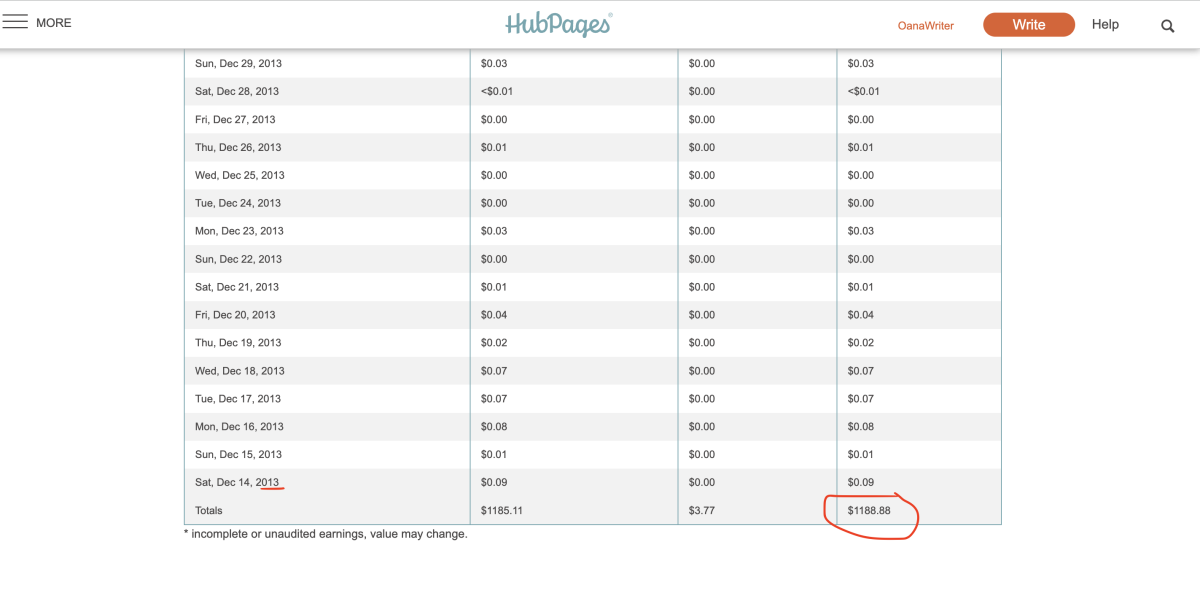How to Make Money Writing Online - Tips You Don't Normally Find, Part I

Some excellent tutorials have been created on how to learn SEO, how to build a link, how to do referral tracking and several other aspects of how to make money online.
However, if you need some guidelines about how to write articles and the behind-the-scenes structure of writing online to make money, the tutorial grass thins considerably.
People don't write nearly as much about how to be totally on your own with no outside regulators - I call them "time police" - to help you stay on schedule as a writer.
Even when I had my own business, my schedules were always safely regulated by factors outside, rather than purely by my internal time regulation. The needs of my clients kept me on schedule as a business owner.
As an employee, my time was even more strictly regulated from the outside. When I decided to write online for money, I hadn't thought about it as a such a big directional change. I was simply working from home on my own schedule, rather than having clients, supervisors or co-workers influencing me. Right?
Now I know differently. When I was in high school (lo, these many decades ago), my teachers were pitiless in letting the whole class know when anyone didn't turn in a paper, and in publicly humiliating students who missed other deadlines.
Then I went to college. To put it mildly, the universe shifted. Suddenly I could wear whatever I liked, I could go to bed and get up when I liked. Nobody said a word to me if I didn't study or turn in papers; there was not even a whisper of condemnation when I skipped tests.
I had a freedom that I had never imagined could exist. Of course, that also meant I was free to fail and nobody would even notice, except me. (Well, and later, my family, but they still didn't regulate my time as it was happening.)

Writing articles on your own - a little too much freedom?
Oddly enough, working as your own writer puts you back in that place again. I don't have any outside regulators. No supervisors. No clients. And no high school teachers. My basic (read that extremely basic) needs are covered by early semi-retirement.
I woke up the morning of my first purely online writing day and felt completely stoked, and free, free, free! Now I had a choice. I could either live on a minimal income (something I would consider failing, but still doable). Or I could work purely by self regulation. It was all up to me.
I had been a freelance writer and that had required organization, so I thought I was not doing anything new. I was ready to do it again. I didn't think of the extra push that a magazine provided to get things done when I knew it had be turned in by a certain date. I was happy to organize my office just so and to get started every morning. At least for a while - during that rose-colored-glasses period.
Then my friends realized I was at home. And a neighbor had a week off. And my sister fell into a long-distance phone, contemplative sharing mood. In general, the traffic on my phone and my doorstep increased. They're very likeable people, and I was enjoying the freedom to actually spend some time with each of them.
Finally, I received a wake-up call. One of my friends asked me to run an errand for her, because I was so available during the day and she had a job. What was I supposed to say?
I also found that there was a lot of catch-up to do from the days when the house came last. The closets had become somehow deeper and the contents more complicated. The yard had magically grown larger. There was a lot to do that I hadn't noticed before. And I was at home, so wasn't I supposed to get busy with it now?
In case you're wondering, the answers are "Sorry, but I'm working, too." and "Not when I'm scheduled for writing."
Those competing demands with no intermediary time regulators were more challenging than I had first thought. I realized that, while I had needed to make sure I was disciplined as a freelance writer, I still had deadlines when I wrote. I had publication dates to meet, and project deadlines.
But I didn't even have those now. I had to do some soul searching and to come up with a plan.

Do you write using your life skills?
I pulled out some of my old notes and tips I had made for myself when I had run into trouble at first in meeting some freelance deadlines for a very boring publication. I hope the information below is useful to you.
If you've never done work before where you have no outside regulators on your production and your hours, you can very likely find yourself a babe in your own self-indulgent woods.
It may be best if you begin working in this new situation by allowing yourself a learning period for building your habits, for learning where you can trust yourself and where you can't, and for building up some of those areas where your will and your skills are weakest. Where your will remains weakest over time, you can accommodate any persistent weakness - recognize that you're not perfect - and wisely work around it.
Giving yourself this time helps to equip you for the real challenge of writing freelance, online or not - the challenge of making sure that your writing, researching or learning time (whichever applies that day) actually happens when you schedule it - every work day, not just the inspired ones. And that, barring emergencies, you put your work first when you've scheduled your work. Even if the sun and the beach are screaming in your ears, the kids are hanging onto your ankles and the house is falling down around you.
Almost any writing, fiction or non-fiction, is a personal thing in its own way, including the very technical writing. But there are not many venues for publishing writing that are as free-floating as writing online. You may not know exactly how you'll accomplish these tasks. But you should at least know yourself well enough to understand whether or not you have the discipline to do what you're considering doing.
Make your habits work for you when you write
Think about how you work and play, and write down the strengths and weaknesses you already know about from your daily life. Are you prompt when you have scheduled appointments? If you leave part of a project to finish later in the day, do you have the self-discipline to finish it as you intended? What's your stick-to-it-iveness? When you're doing tasks at home, do you finish them, or do you have a lot of unfinished projects around? When you know a deadline is due, do you tend to procrastinate or to dig right in? Do you tend to do the easy things and to put off doing the more difficult ones?
Think also about what your really productivity is, in relationship to your work day and work week. If you've worked for others, what length of work day and work week really felt human to you? In a full work day, are there consistently a few hours per day where you feel stressed or are only treading water because the day feels too long? In a work week, do you feel more productive when you work four days out of seven than you do when you work five days out of seven? What time of day do you tend to get things done? When do you feel the most motivated during your day?
When you think of your tendencies while in the midst of doing projects or fulfilling obligations and what your stamina levels are for work, try to apply these tendencies to how you might do your writing. Will you start a lot of writing, but not finish it? Or will you possibly dump your writing online without polishing it, spell-checking or proofing it? Will you focus on the fun part of writing and only skim the surface during the work of polishing and the effort of rewriting the difficult parts.
Using your understanding of your writing strengths and weaknesses and how they fit with your general patterns, you will learn to work around your problem areas and to enhance your strengths even more. You may even learn how to adapt your writing schedule and style so that you play to your strengths. By that I mean if you work better on a certain part of a topic, you might decide to stick to that part. Some examples would be sticking to family law when writing about law, or using a satirical tone instead of doing straight reporting when describing political problems. In the case of poetry, maybe your strength is Haiku, or in fiction your strength could be choosing to write comedy pieces rather than tragedies.
On the other hand, when you've identified your weaknesses, focus on how to strengthen those areas of behavior. Don't get lost in condemning yourself for having weak areas. Some of them are there simply because you haven't needed to focus on them before. If that is the case, they will improve as you build new habits associated with them.
- 72 Places to Get Amazing Backlinks
These are the best places to get quality backlinks. Learn about the different types of backlinks, how they help, and where to get them!
Let time go by without monitoring the minutes

Trick yourself when you're writing
If a weakness when you're writing follows the same pattern as that weakness does in your general life, you can work on it even if you don't improve in that way in your living. If you don't tend to finish projects after you've left them, then try providing yourself two distinct sets of work time to write, one to get it down and a second session to polish and publish it online. This gives you the mental trick of thinking about the total of writing an article as two separate things.
It also has the added advantage of reading your piece the next day with a fresh voice when you're polishing it. If, after some effort and time have been applied, you see no improvement in a certain tendency when writing, as least you have identified where the writing potholes are and you can work around them. Using the example of not finishing writing projects, you would simply not walk away from a piece until it was finished. That might make it more necessary for you to work on shorter articles, but you would at least be producing work.
In general, it helps if you think of building up good work habits as if you were building up your muscles. First, you're a light lifter, then you're able to handle trickier situations, then you're mostly right where you want to be and can trust yourself to be as disciplined as you intend to.
In your habit building, you need to know your limits and your potential. Be honest with yourself about what limits you'll honor and what limits you'll slide on at any given time. Try to operate from a realistic viewpoint, rather than a blind optimism.
If you can locate and make more evident the areas that you are strong in and the areas that you will need to be aware of, you will find yourself being more productive. If you know that you can't trust yourself with a task or situation yet, you won't waste your time by placing yourself in that situation - unless you are deliberately testing to see if you'll actually follow through.
This is my first set of tips on writing online and how you can make money at it, rather than treat it as one more project that never quite gets off the ground.
Please support the writing that you like
If you vote up or vote down an author's writing, you will show the people who follow you what you feel the quality of the writing is. Please support writers by voting up their work.









